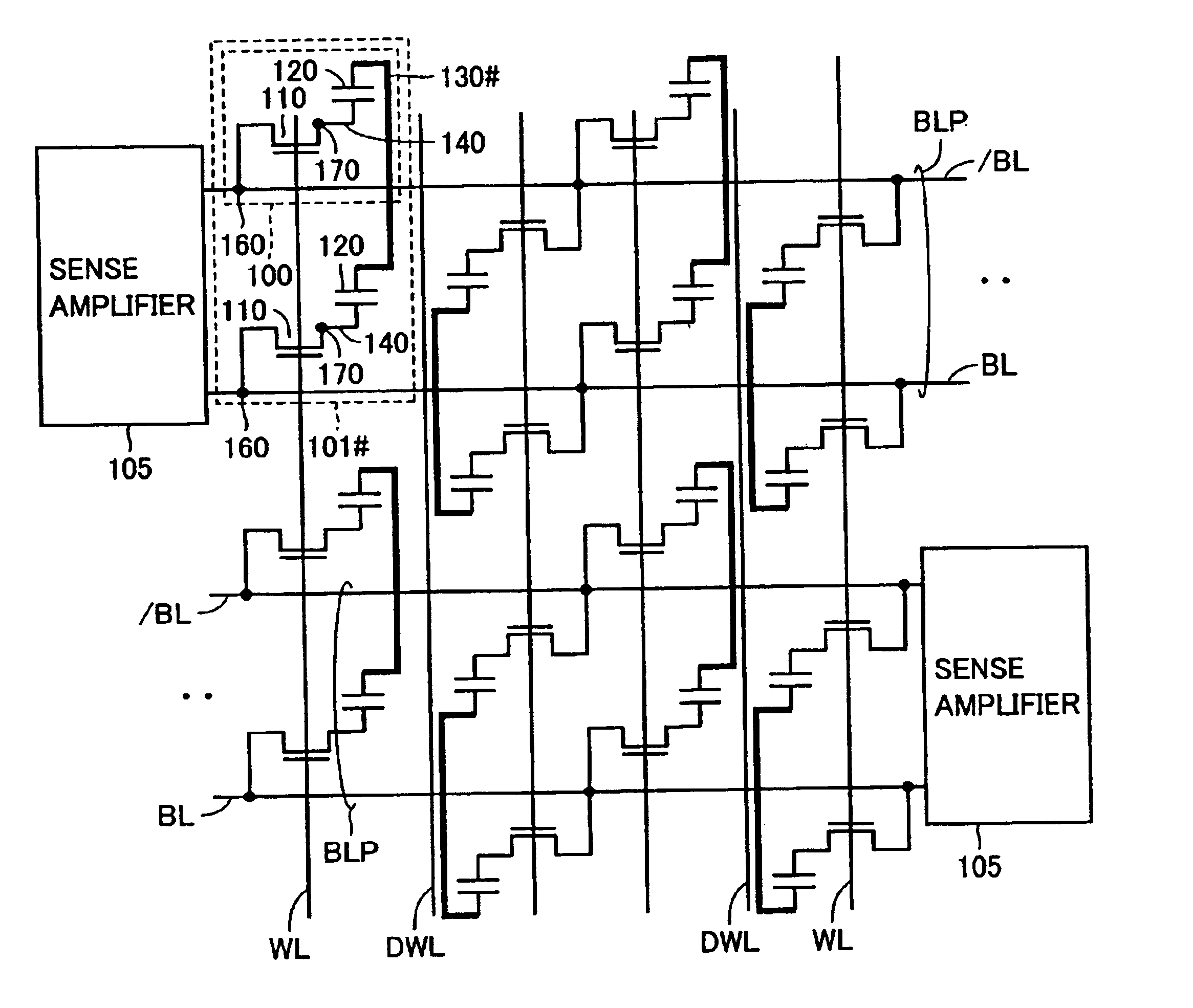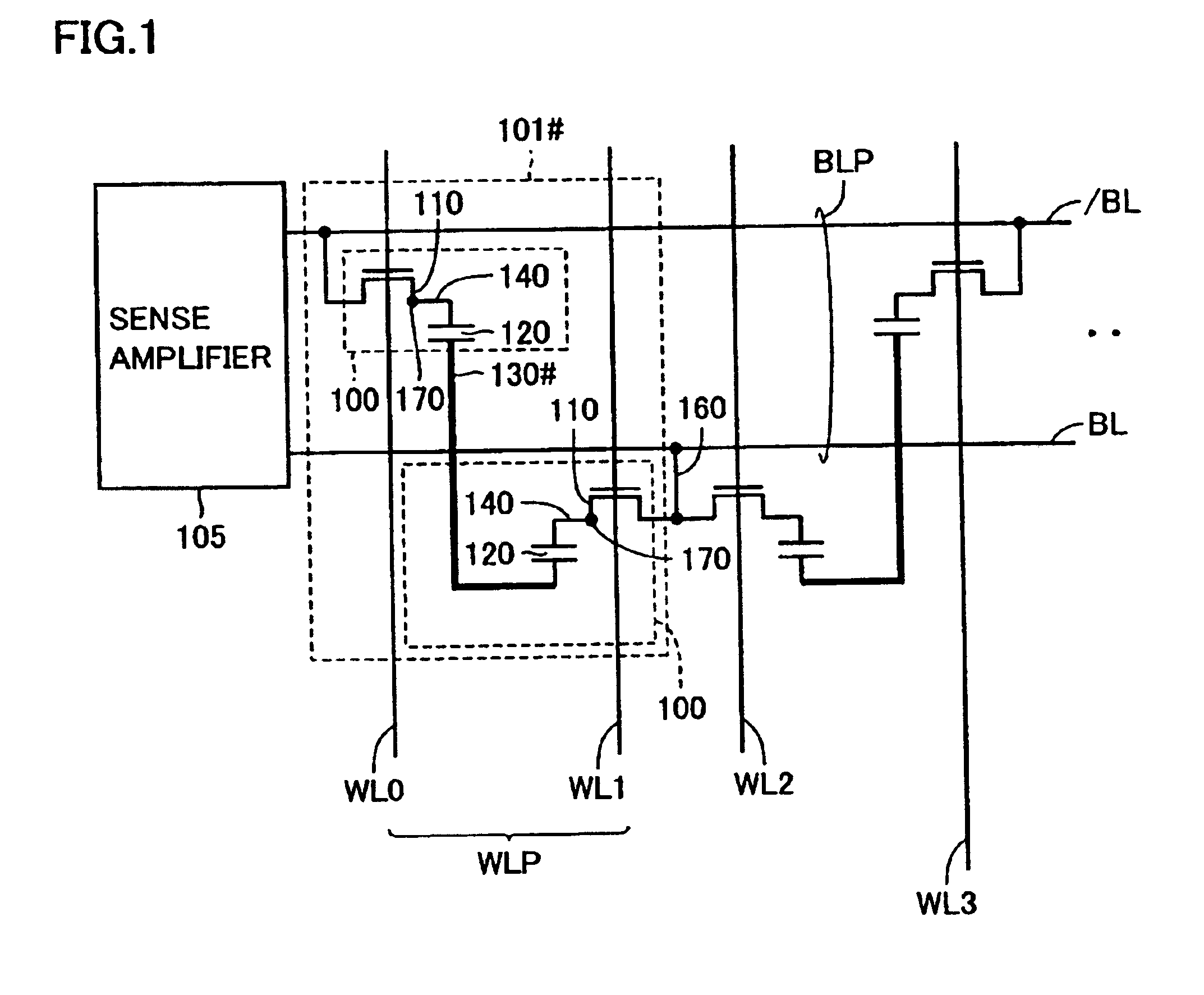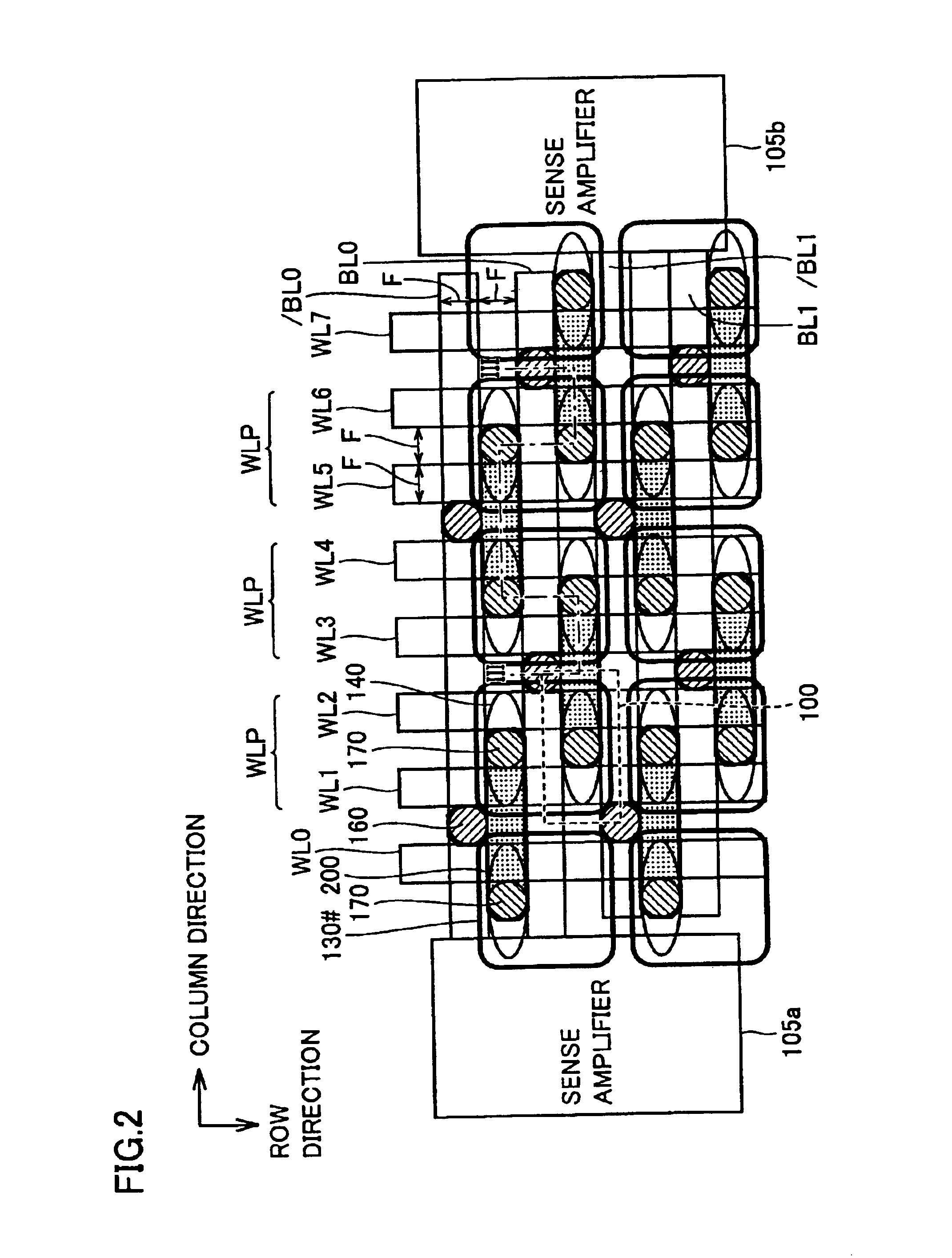Semiconductor memory device having twin-cell units
a memory device and semiconductor technology, applied in semiconductor devices, digital storage, instruments, etc., can solve the problems of affecting the performance of the memory device, so as to improve the refresh characteristics and manufacturing yield of the semiconductor memory device, improve the effect of refresh time and increase the number of times
- Summary
- Abstract
- Description
- Claims
- Application Information
AI Technical Summary
Benefits of technology
Problems solved by technology
Method used
Image
Examples
first embodiment
[0044
[0045]A memory cell structure of a twin-cell DRAM according to an embodiment of the invention, which has improved refresh characteristics, will now be described with reference to the drawings.
[0046]Referring to FIG. 1, a twin-cell unit 101# according to a first embodiment is formed of two DRAM cells 100, which are connected to paired complementary bit lines BL and / BL, respectively, similarly to a conventional twin-cell unit 101 shown in FIG. 17. Each DRAM cell 100 includes an access transistor 110 and a capacitor 120, as is already described with reference to FIG. 17. Access transistors 110 of two DRAM cells 100 forming twin-cell unit 101# have gates connected to two word lines (e.g., word lines WL0 and WL1) forming a word line pair WLP, respectively.
[0047]In the twin-cell DRAM according to the first embodiment, a cell plate structure is formed of isolated cell plates 130#, which are divided from each other and correspond to twin-cell units 101#, respectively. Each isolated ce...
second embodiment
[0079
[0080]In the twin-cell DRAM, it is important to arrange the DRAM cells at a high density for reducing a layout area, as already described. Therefore, second and third embodiments will now be described in connection with layouts for efficiently arranging the twin-cell units, which have been described in connection with the first embodiment.
[0081]Referring to FIG. 5, which shows a structure according to the second embodiment, two DRAM cells 100 forming the same twin-cell unit 101# are selected by common word line WL. Structures of the second embodiment other than the above are substantially the same as those of the first embodiment. Therefore, corresponding portions bear the same reference numbers, and description thereof is not repeated.
[0082]FIG. 6 schematically shows a layout of a memory array portion in the semiconductor memory device according to the second embodiment.
[0083]In FIG. 6, word lines WL0-WL5 extend in the row direction. Bit lines BL0 and / BL0-BL4 and / BL4 extend ...
third embodiment
[0091
[0092]FIG. 7 schematically shows a structure of a memory array portion in a semiconductor memory device according to a third embodiment of the invention.
[0093]Referring to FIG. 7, a structure according to the third embodiment includes dummy word lines DWL formed along word lines WL, in addition to the structures of the second embodiment shown in FIG. 5. Structures other than the above are substantially the same as those according to the second embodiment shown in FIG. 5. Corresponding portions bear the same reference numbers, and description thereof is not repeated.
[0094]FIG. 8 schematically shows a layout of a memory array portion in the semiconductor memory device according to the third embodiment.
[0095]Referring to FIG. 8, the layout according to the third embodiment differs from the layout according to the second embodiment shown in FIG. 6 in the following points. Dummy word line DWL is arranged between storage node contacts 170, which are formed in field regions 200 neighb...
PUM
 Login to View More
Login to View More Abstract
Description
Claims
Application Information
 Login to View More
Login to View More - R&D
- Intellectual Property
- Life Sciences
- Materials
- Tech Scout
- Unparalleled Data Quality
- Higher Quality Content
- 60% Fewer Hallucinations
Browse by: Latest US Patents, China's latest patents, Technical Efficacy Thesaurus, Application Domain, Technology Topic, Popular Technical Reports.
© 2025 PatSnap. All rights reserved.Legal|Privacy policy|Modern Slavery Act Transparency Statement|Sitemap|About US| Contact US: help@patsnap.com



